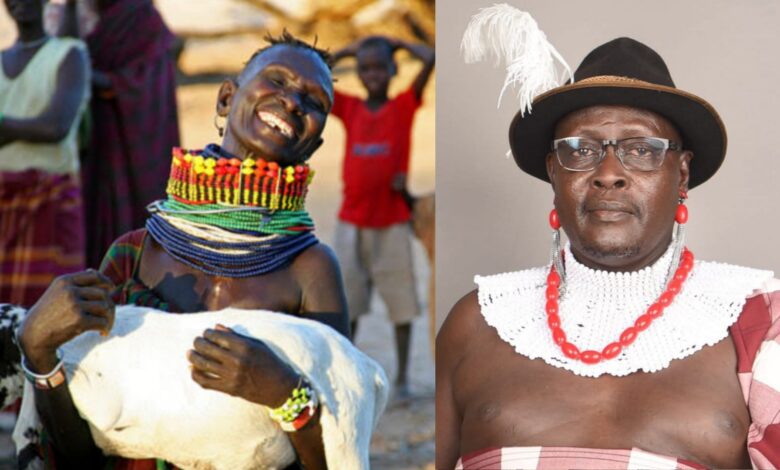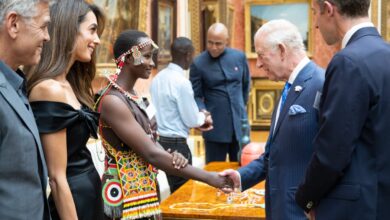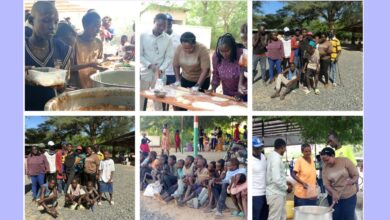Why The Turkana Do Not Have A Word For “THANK YOU”

By Boniface Korobe
The Turkana do not traditionally have a verbal equivalent of “thank you.” This is not due to ingratitude, but because appreciation is best expressed through reciprocal deeds, not words. Saying “thank you” in a definitive, verbal way risks terminating the cycle of obligation and generosity, whereas the Turkana ethic keeps the exchange of good deeds open. A good deed is not concluded by verbal acknowledgment, it is continued through future kindness.
In this system, gratitude is a living force, repaid in time through actions that may be simple but are always meaningful. A favor done today is not forgotten, it is carried forward until the opportunity arises to return it. This principle strengthens social bonds, builds interdependence, and sustains collective resilience in an unpredictable environment.
The Turkana language is characterized by an economy of words, communication is through context and behavior, where a single term may carry various meanings depending on tone, context, and gesture. Much of what is “spoken” is actually expressed through silence, posture, or behavior. Understanding comes not just from hearing, but from reading situations, interpreting signs, and trusting shared cultural knowledge.
Rather than elaborating their feelings in speech, the Turkana emphasize presence, perception, and restraint. This form of communication is not simplistic, it is sophisticated and deeply relational, requiring attentiveness and emotional intelligence. It reflects a worldview in which knowing what to do or say at the right moment is more valuable than simply speaking frequently.
As Turkana society increasingly interacts with external cultures and languages, expressions such as: (a) Ejok noi – Very good (b) Alakara – I am happy and (c) Apiaaro – Blessings, have been adopted in some circles as substitutes for “thank you.” However, these borrowed usages are incongruent with traditional Turkana philosophy. By verbalizing gratitude in this way, the moral obligation to reciprocate may be prematurely closed. The speaker risks saying, in effect, “I am done with this exchange,” rather than acknowledging an ongoing relational commitment.
Such verbal shortcuts threaten to erode the deeper ethic of reciprocity, replacing meaningful social bonds with fleeting politeness. In Turkana tradition, a thank you is not spoken, it is felt, remembered, and eventually returned.
In Turkana culture, body language functions as a powerful mode of communication. A deep breath after receiving a gift, a prolonged gaze at the giver or at the sky, a respectful pause before leaving, all these are recognized as genuine expressions of appreciation. No words are necessary, because understanding is embedded in shared experience.
The giver knows that the gesture was received with gratitude; the recipient understands that a future opportunity to return the kindness will arise. This silent exchange is not absence, it is presence in its most distilled and respectful form. It upholds the Turkana belief that actions speak louder than words, and silence often speaks loudest of all.
Hospitality is more than a cultural practice, it is a sacred obligation and an act of survival. Every Turkana household is guided by the unspoken rule that visitors must be cared for before they are spoken to. This is not merely courtesy; it is an ethical response to the realities of the environment.
One remarkable expression of this is the tradition of maintaining a “akurum na a ngipeyok – a wooden container reserved exclusively for storing surplus milk for unexpected guests or travelers. This custom reflects proactive empathy: the anticipation of someone else’s need before they even arrive. It spares the guest from the burden of asking and affirms that their presence is expected and welcome, even without prior notice.
When a traveler bypasses the shade trees where men rest and walks directly to a homestead, it is immediately understood that they are in need. Women, as custodians of the home, respond without hesitation, offering milk mixed with water (eerer) equivalent of “quencher” to restore strength. The guest may not utter a word, but the household already knows what must be done.
What emerges from these practices is a coherent, resilient philosophy: actions are the true markers of value and virtue. In the Turkana worldview, it is not enough to speak well, one must act well. Words may fade, but deeds endure; they become part of communal memory and social history.
In this way, hospitality and reciprocity are not only responses to hardship, they are the means by which hardship is navigated. These pillars foster a network of mutual aid, trust, and dignity in a land where cooperation is not only ethical, it is essential.
The Turkana ethic of minimal speech (economy of words), deep understanding, and action-based communication is a sophisticated system rooted in environmental reality, social necessity, and cultural wisdom. It teaches that true appreciation is not spoken, it is shown, that kindness is a commitment, not a transaction, and that hospitality is a responsibility, not an occasion.
In this tradition, to speak less is not to feel less, it is to feel more deeply, act more intentionally, and live more connectedly. In a world increasingly defined by words, the Turkana linguistic minimalist approach reminds us that sometimes, the most profound expressions of humanity are those that are lived rather than verbalized.
BONIFACE KOROBE is a historian and writer based in Turkana County







